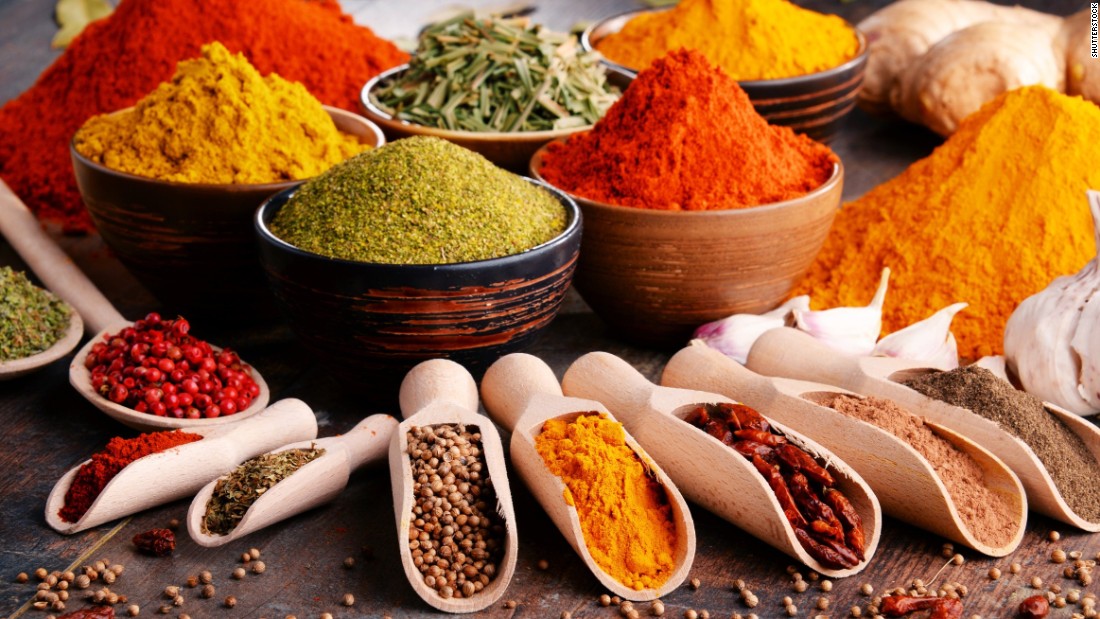Inflammation is the body’s natural response to injury or infection, often causing localized redness, swelling, pain, or heat. It may cause loss of function of the involved tissues. Acute inflammation is typically a protective and localized response to infection or injury. It’s designed to heal the body and restore normal tissue function.
Inflammation of the joints, including stiffness and swelling are common symptoms of arthritis.
If inflammation persists for a prolonged period of time, it becomes chronic inflammation. Chronic inflammation can be the result of an infection, autoimmune reaction, or allergy.
Anti-inflammatory foods and spices
Certain foods have been identified as anti-inflammatory. They may help to reduce chronic inflammation and pain. Omega-3 fatty acids found in fish, certain nuts, and even chocolate have all been acknowledged for their anti-inflammatory properties.
Research into exactly how well these foods reduce inflammation in the body is mixed, but promising. One easy way to incorporate anti-inflammatories into your diet is through the use of spices.
Turmeric is a brilliant yellow spice common in Indian cuisine that you can find in any grocery store. Turmeric has been used as a medicine for centuries to treat wounds, infections, colds, and liver disease.
Studies have shown that curcumin, a compound in turmeric, may reduce inflammation in the body.
Ginger is a zesty spice used in many cuisines. You can buy it powdered or as a fresh root in most supermarkets. Ginger has been used as a traditional medicine to treat stomach upset, headaches, and infections.
The anti-inflammatory properties of ginger have been praised for centuries, and scientific studies have confirmed it.
Cinnamon is a popular spice often used to flavor baked treats. But cinnamon is more than just a delicious additive in our cakes. Studies have shown that the spice has anti-inflammatory properties, which can ease swelling.
Keep a good supply of cinnamon on hand and sprinkle it in your coffee or tea, and on top of your breakfast cereal.
The anti-inflammatory properties of garlic have been proven to ease arthritis symptoms. A little bit can go a long way. Use fresh garlic in almost any savory dish for added flavor and health benefits.
If the taste is too much for you, roast a head of garlic for a sweeter, milder flavor.
Cayenne and other hot chili peppers have been praised for their health benefits since ancient times. All chili peppers contain natural compounds called capsaicinoids. These are what give the spicy fruit its anti-inflammatory properties.
Chili pepper is widely considered to be a powerful anti-inflammatory spice, so be sure to include a dash in your next dish. It has long been used as a digestive aid as well, so that’s an added benefit.
If cayenne is too hot for your liking, you’ll be happy to know that the milder black pepper has been identified for its anti-inflammatory properties as well. Known as the “King of Spices,” black pepper has been valued for its flavor and antibacterial, antioxidant, and anti-inflammatory benefits.
Studies have shown that the chemical compounds of black pepper, particularly piperine, may be effective in the early acute inflammatory process.
Cloves have been used as an expectorant, and to treat upset stomach, nausea, and inflammation of the mouth and throat. Research is still mixed, but evidence suggests that they may have anti-inflammatory properties.
Powdered clove works well in baked goods and in some savory dishes, like hearty soups and stews. You can also use whole cloves to infuse both flavor and nutrition into hot drinks like tea or cider.
Call today and ask about our food sensitivity testing.
The first step to controlling inflammation is understanding your bodies unique responses to its environment,
and letting those work for you…not against you.
(479) 636-1324
ARTICLE RESOURCES:
- Akhtar, N., & Haqqi, T.M. (2012, June). Current neutraceuticals in the management of osteoarthritis: A review. Therapeutic Advances in Musculoskeletal Disease, 4(3), 181-297
ncbi.nlm.nih.gov/pmc/articles/PMC3400101/ - Bon, J.O., Oh, J.H., Kim, T. M., Kim, D. J., Jeong, H., Han, S. B., & Hong, J.T. (2009, September 30). Anti-inflammatory and arthritic effects of thiacremonone, a novel sulfur compound isolated from garlic via inhibition of NF-κB. Arthritis Research and Therapy, 11, R145
arthritis-research.biomedcentral.com/articles/10.1186/ar2819 - Buzzed on inflammation. (n.d.)
healthletter.mayoclinic.com/editorial/editorial.cfm/i/163/t/Buzzed%20on%20inflammation/ - Grzanna, R., Lindmark, L., Frondoza, C. G. (2005). Ginger—an herbal medicinal product with broad anti-inflammatory actions. Journal of Medicinal Food, 8(2), 125-32
ncbi.nlm.nih.gov/pubmed/16117603 - Jungbauer, A., & Medjakovic, S. (2011, December 26). Anti-Inflammatory properties of culinary herbs and spices that ameliorate the effects of metabolic syndrome. Maturitas, 71(3), 227-239. Retrieved from
maturitas.org/article/S0378-5122(11)00438-5/fulltext#sec0035 - Lee, S. H., Lee, S. Y., Son, D. J., Lee, H., Yoo, H. S., Song, S., Oh, K. W., Han, D. C., Kwon, B.M. & Hong, J. T. (2005, March 1). Inhibitory effect of 2’-hydroxycinnamaldehyde on nitric oxide production through inhibition of NF-kappa B activation in RAW 264.7 cells. Biochemistry Pharmacology, 69(5), 791-799. Retrieved from
ncbi.nlm.nih.gov/pubmed/15710356 - Meghwal, M. and Goswami, TK. (2012. June 26). Nutritional constituent of black pepper as medicinal molecules: A review. Open Access Scientific Reports, 1(129)
omicsonline.org/scientific-reports/srep129.php - Taher, Y. A., Samud, A. M., El-Taher, F. E., ben-Hussin, G., Al-Mehdawi, B. F., & Salem, H. A. (2015, September). Experimementalwvaluation of anti-inflammatory, antinociceptive and antipyretic activities of clove oil in mice. Libyan Journal of Medicine, 1(10), 28685
ncbi.nlm.nih.gov/pubmed/26333873


